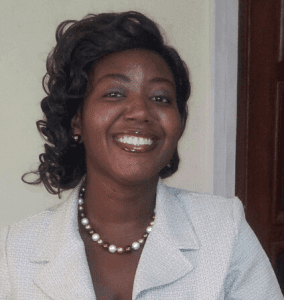Educational Issues
Nigeria In Dare Need Of Low-cost, Private Schools -By Adetola Salau

Access to quality education has enabled me to reach far beyond the Bangladeshi village I grew up in. – Muhammad Yunus
During one of my early morning workouts, a colleague informed me that dozens of private universities have applied for licenses to operate. They are taking advantage of the desperate demand for degrees by the general public. The thing is that these institutions charge a arm and a leg for admittance and could be virtually out of the reach of majority of the people who need their services. This high cost of education often serves as a deterrent to students able to advance in school. A lot drop out to pursue money-generating activities.
This leads to a focus on the cost and quality of education proffered. Education for the most part is expensive in Nigeria and unfortunately this expense doesn’t necessarily correlate to quality.
From my experience, if you want quality, you will have to provide a heavy subsidy, besides what you are already paying, to your child’s school for private coaching and extracurricular activities. All of these are just to ensure that your child becomes globally competitive. I am emphasising this to depict the fact that although enrollment is high in private schools across Nigeria, learning outcomes are a momentous challenge across public and private schools. Previously there was a stigma against low-cost, private schools in Nigeria, however with the number of out-of-school children rising, there is a clear unmet demand (and inclination to pay).

Low-cost, private schools should be able to provide quality education, or even decent quality education, at an affordable price to lower-income families. There is no quick fix for this: it involves innovative new approaches, tweaking the curriculum, boosting teaching methods, supporting teachers and ensuring that parents are engaged in some ideas that have helped countries struggling with the same issues like Vietnam. What makes this situation dire is the fact that the population in Nigeria is exploding and the inequity in education is widening.
The average class sizes of public schools is over 30 pupils per class, and private schools have the opportunity to remedy this. Also bothersome is the attitude about test scores by parents. Just recently, in a WhatsApp group I belong to, a school owner complained about the parent of a six-year old who forced a teacher to retest her child twice because she felt the child didn’t score as high as she should have. This emphasis on test scores as a method of gauging educational success shows that it will take a major shift in mindsets for parents, students, and teachers to accept that true comprehension goes beyond test scores. A lot of these private schools are afraid of parents because they want to have high enrollment numbers and keep parents who consistently pay fees.
Supporting these schools to be accountable, provide quality education by supporting the teachers, integrating curricula that leverages on worldwide best teaching practices, is a win-win situation for society, if we mean business about lowering the number of out-of-school children across Nigeria.
Earlier this year, a school was operating in a home and the structure was unsafe. It eventually collapsed and it was a horrible situation. Immediately, a lot of people were calling for the closure of schools like this, yet the fact remains that when emotions are set aside, low cost private schools are a necessity in our society due to the significant gap in providing quality education that exists.
There is also an urgent need to greatly enhance the supply of quality options for lower-income families as they are a huge segment of society. Across the world, innovative schools in diverse nations such as Peru, India and the United states show that it’s possible to find a balance between financial sustainability, quality education, and affordable pricing.
Adetola Salau, Carismalife4U@gmail.com, an advocate of STEM education, public speaker, author, and social entrepreneur, is passionate about education reform.



















